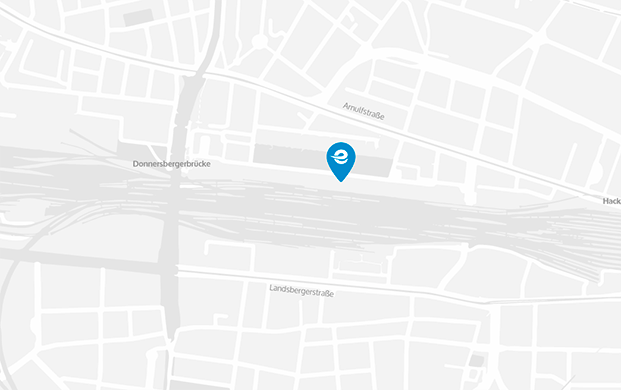Cement is a building material that is needed in large quantities, but unfortunately does not grow on trees. It is created through numerous steps such as raw material extraction in the quarry, material processing, production of raw meal and clinker and finally takes its final form in the cement mill. The cement industry faces major social challenges: Not only does it have to meet the high demand for cement, but as the main source of greenhouse gases it also has to comply with new environmental regulations and optimally manage the enormous amount of energy required for its production.
Digitalization as the answer to the challenges facing the cement industry
A cement plant in central Franconia faced these challenges in cooperation with elunic. The focus here was on digitalization: since digitally mapping its processes, the cement plant has been able to secure its economic strength and competitiveness in the highly competitive market in the long term.
The terms "Industry 4.0" and IoT played a key role in their collaboration: Industry 4.0 describes the linking of the digital and real worlds within industrial production. IoT, or the Internet ofThings, encompasses all technologies that are used here to enable machines to be virtually networked and communicate with each other using certain technologies. For the cement company from Middle Franconia, the step towards the digital transformation of its production was so successful because it was able to automate and accelerate its process steps for manufacturing cement thanks to elunic's tailor-made Industry 4.0 and IoT solutions. As a result, the cement manufacturer can now produce its building material to a higher quality, reduce its production costs, achieve customer satisfaction and make the entire manufacturing process more sustainable.
Optimization of cement production through artificial intelligence (AI)
The Central Franconian cement manufacturer was able to achieve the greatest effects of digitalization in its vertical roller mills, as they are the central machines within its cement production chain: they crush the raw material required to produce the cement for the kiln meal and grind the clinker produced in the kiln with the addition of additives. Not only does this process require an enormous amount of energy, the mills are also subject to considerable wear and tear. The cement plant was threatened witha deterioration in performance, unexpected downtime and a shortened service life for its machines.
For this reason, it was important to identify the optimum operating parameters for these mills as a first step. To this end, elunic equipped the cement plant with state-of-the-art hardware and software solutions to collect data on each individual plant component and use it in the cloud for data analysis. The cement plant in central Franconia was then able to specify guideline values for certain control variables, such as throughput, availability, quality, energy efficiency and smooth running, which, through continuous learning by artificial intelligence , bring the mill operation closer to its optimum state and which could be dynamically adapted to changing operating conditions. In this way, the cement manufacturer always achieves the optimum operating point for its vertical roller mills.
Get a non-binding evaluation for your company:
IoT solutions for anomaly analysis in the cement industry
Thanks to intelligent, data-based control, the cement plant in Middle Franconia can not only fine-tune the individual, optimum performance conditions of its mills and thus improve their performance. The new digital solutions have also had an impact on the availability of its machines. The cement manufacturer is now able to use intelligent sensors to monitor the load collectives that occur when grinding the raw material and clinker and generate corresponding alarms in the event of load anomalies. The IoT technologies implemented by elunic for this purpose continuously measure the actual load during operation and identify the design limits of the mills in real time based on this database . If the Central Bavarian cement company is informed of deviations in machine utilization as part of its anomaly analysis, it can react quickly to these anomalies long before actual problems occur. The benefits for the cement industry are obvious: reducing the power requirements of the mills, avoiding machine damage and subsequent unexpected downtime and extending their life cycle. The data also provides information on when the mills need to be serviced and which redundancy systems need to be switched on in this case, as well as when a machine replacement will be necessary(predictive maintenance).
elunic ist Ihr Partner für die Digitalisierung in der Zementindustrie
For over 15 years, elunic has been developing tailor-made Industry 4.0 and IoT solutions, enabling machine manufacturers and operators to network their machines and production. This allows machine data to be recorded and analysed in real time and work processes to be digitalized.
The cement industry benefits from digitalization within its production chain in that it can significantly improve the performance, availability and service life of its machines. By digitizing their systems, cement plants can avoid production downtimes, save material and energy and plan the replacement of mills ahead of time.
elunic accompanies you on your digital transformation journey and supports you in making your drive systems smarter, more efficient and the cement production process more sustainable. Get in touch with us!
Further references
More about the reference project.
























































































